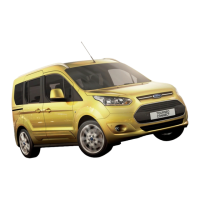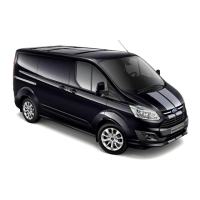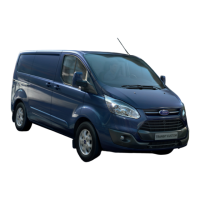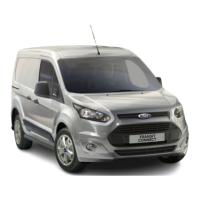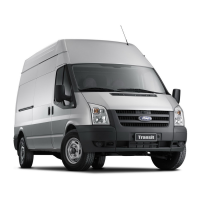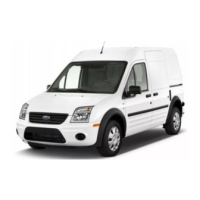Main-beam control
Depending on the vehicle equipment level,
advanced main-beam control may also be
available → page 110.
WARNING
Incorrect use of the main beam head-
lights c
an lead to accidents and serious
injuries as the main beam headlights can
distract and dazzle other road users.
High-beam control
High-beam control automatically dips the
headlamps when oncoming vehicles and
vehicles driving in front are detected. High-
beam control also recognises illuminated
areas such as towns and deactivates the
high beam while driving through them.
Within the limits of the system, the high
beam is automatically switched on or o
depending on ambient and trac condi-
tions and on the driving speed → .
Depending on the vehicle equipment level,
high-beam c
ontrol can be activated and
deactivated in the vehicle settings in the In-
fotainment system → page 34.
Switching on high-beam control
1. Switch on the ignition and automatic
lighting control
.
2.
Push the direction indicator and high
beam lever forwards from its basic po-
sition.
The indicator lamp
lights up in the instru-
ment cluster displa
y when high-beam con-
trol is switched on. When high-beam con-
trol is active, the blue
indicator lamp for
high beam lights up a
dditionally in the in-
strument cluster.
Switching o high-beam control
1. Switch o automatic lighting con-
trol
.
Or: high-beam c
ontrol switched on and
active: pull back the direction indicator
and high beam lever.
Or: high-beam control switched on and
not active: tap the direction indicator
and high beam lever forwards to switch
on manual high beam. P
ull back the di-
rection indicator and high beam lever to
switch o the manual high beam if nec-
essary.
Or: switch o the ignition.
System limitations
The high beam has to be manually switch-
ed o under the following conditions, as it
is not switched o by the high-beam con-
trol in time or at all:
— In poorly lit streets where there are high-
ly-reflective signs.
— Other road users with insucient lighting
facilities, such as pedestrians, cyclists.
— In tight bends, brows of hills or depres-
sions in the land or half-hidden oncoming
trac.
— With oncoming trac on streets with
a central barrier where the driver can see
clearly over the central barrier e.g. truck
drivers.
— In fog, snow or heavy rain.
— In dusty or sandy areas.
— Damage to the windscreen in the cam-
era’s vision field.
— If the viewing field of the camera is mis-
ted up, dirty, covered by a sticker, snow
or ice.
— If the camera is broken or the power sup-
ply is interrupted.
WARNING
Do not let the extra convenience a
orded
by high-beam control tempt you into tak-
ing any risks when driving. The system is
not a substitute for the full concentration
of the driver.
·
Always check the lighting yourself and
adjust it to suit the light, visibility and
trac conditions.
·
The high-beam control may not be able
to recognise all driving situations cor-
rectly and may not work properly in cer-
tain situations.
·
If the camera’s field of view is dirty, cov-
ered or damaged, the function of the
high-beam control may be impaired.
This also applies if changes are made
110
Lights

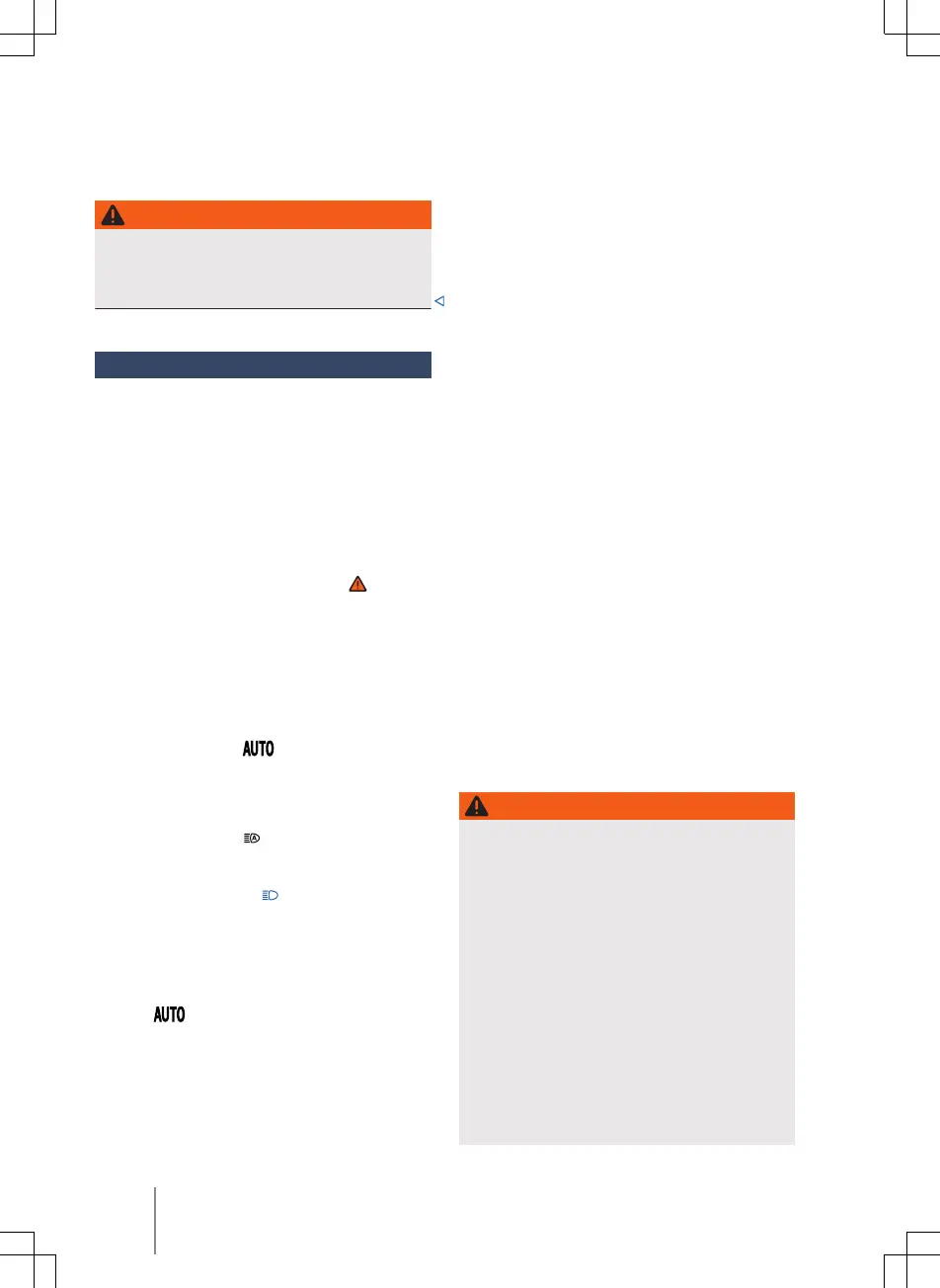